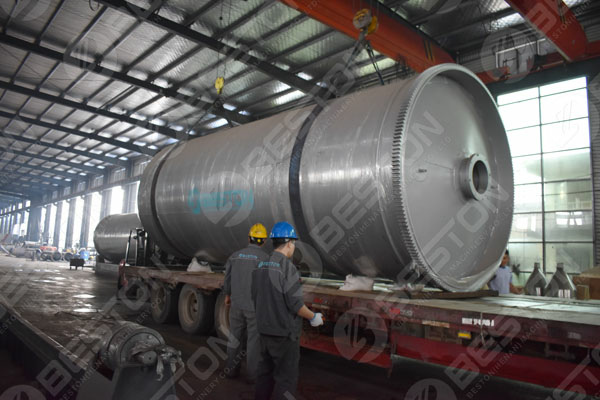Introduction
The world is drowning in waste, and traditional waste management methods struggle to keep up with the ever-increasing heaps of trash. However, there is a game-changer in the realm of waste management—the pyrolysis plant. These innovative facilities have the power to transform waste into valuable resources, offering a glimmer of hope in our quest for sustainable solutions. In this article, we'll delve into the potential of pyrolysis plants and explore the numerous benefits they bring to the table.
Understanding Pyrolysis
Pyrolysis, the process at the heart of pyrolysis plants, involves heating organic materials in the absence of oxygen, causing them to break down and transform into useful by-products. In a pyrolysis plant, various components work together harmoniously, facilitating the conversion process. From the reactor to the heating system, each element plays a vital role in extracting value from waste materials.
Environmental Benefits
One of the significant advantages of pyrolysis plant for sale lies in their environmental impact. By diverting waste from landfills, these plants alleviate the burden on these overflowing sites and reduce the associated environmental hazards. Moreover, pyrolysis mitigates greenhouse gas emissions compared to traditional waste management methods, contributing to the fight against climate change. In essence, pyrolysis plants are instrumental in promoting the circular economy, where waste is transformed into valuable resources, rather than discarded and forgotten.

Economic Advantages
Harnessing the potential of pyrolysis plants not only benefits the environment but also presents lucrative economic opportunities. Waste that was once considered a liability can now be transformed into a valuable asset. Pyrolysis plants generate revenue by converting waste into marketable by-products, such as biochar, pyrolysis oil, and syngas. Additionally, these plants create jobs, contributing to local economies and fostering sustainable development.
Applications and Industries
Pyrolysis plants have far-reaching applications across various industries. In the realm of energy production, the pyrolysis oil derived from the process can be used as a renewable fuel source, powering generators and heating systems. The chemical industry benefits from the diverse range of compounds that can be extracted from pyrolysis, serving as valuable feedstock for the production of plastics, fuels, and other materials. Furthermore, the biochar produced can be utilized in agriculture as a soil amendment, improving soil fertility and promoting sustainable farming practices.
Future Potential and Development
As technology continues to advance, so does the potential of pyrolysis plants. Constant innovation and efficiency improvements are driving the industry forward, making pyrolysis a more accessible and economically viable waste management solution. Moreover, supportive policies and regulatory frameworks play a crucial role in facilitating the growth of pyrolysis plants and encouraging their widespread adoption. With increased scaling up and collaboration between public and private sectors, pyrolysis plants can revolutionize waste management on a global scale.
In conclusion, pyrolysis plants hold immense potential in the realm of waste management. With their ability to convert waste into valuable resources, they offer a glimmer of hope in the fight against environmental degradation and climate change. By harnessing the power of pyrolysis, we can transform waste into a valuable asset, creating a more sustainable and prosperous future for generations to come. It's time to embrace the potential of pyrolysis plants and pave the way for a cleaner, greener world.


 留言列表
留言列表
